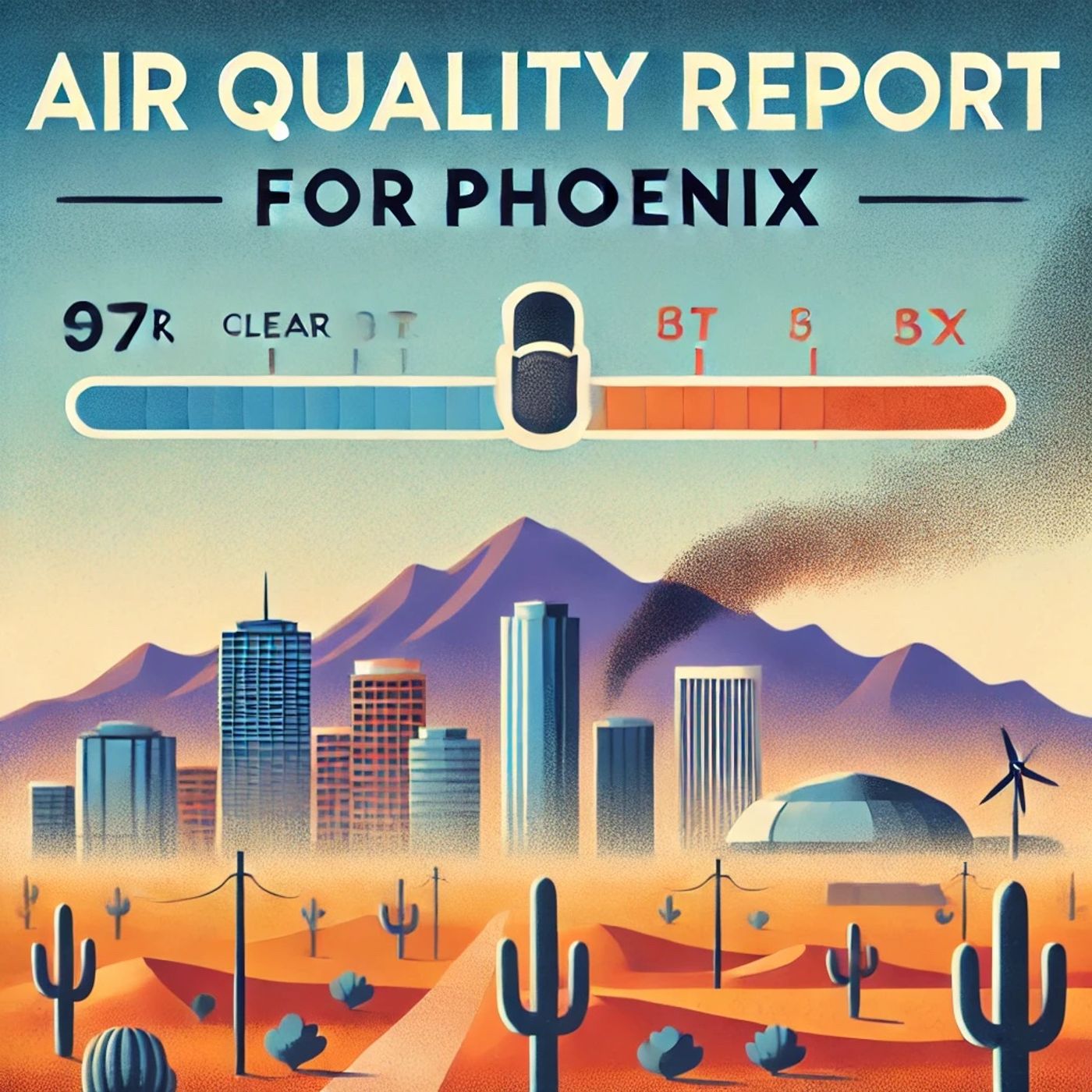Listen "Phoenix Air Quality Closely Monitored Amid Ozone and Particulate Concerns"
Episode Synopsis
Air quality in Phoenix today, June 28, 2025, is under close watch due to concerns about ozone and particulate pollution. The Arizona Department of Environmental Quality has issued an Ozone High Pollution Watch for the day, a precaution that signals a risk of elevated ozone levels, especially during the hottest hours of the afternoon and early evening. Residents are advised to be mindful when planning outdoor activities, as ozone can irritate respiratory systems and provoke symptoms in people with asthma or other lung conditions.The air quality index for ozone in Phoenix is forecasted at 48, which falls in the Good to Moderate range. This means that while the general public is unlikely to be affected, sensitive groups such as children, older adults, and those with respiratory issues may want to limit prolonged outdoor exertion, especially as ozone levels can spike later in the day.Particulate matter, specifically PM10—the larger dust particles commonly stirred up in Arizona’s dry climate—is expected to reach an AQI of 76. This is in the Moderate range but is notably higher than on recent days, as blowing dust is possible. PM2.5, the finer particulate matter that can penetrate deep into the lungs, is forecast at an AQI of 52, also categorized as Moderate. Sensitive individuals should take extra caution by staying indoors if visibility worsens or if they experience symptoms such as coughing or shortness of breath.Phoenix consistently ranks among the nation’s most ozone-polluted cities, earning the fourth spot in the 2025 State of the Air report by the American Lung Association. Residents are reminded that both ozone and particulate pollution can lead to asthma attacks, exacerbate existing heart and lung conditions, and increase health risks for vulnerable populations.Staying informed about real-time air quality and following advisories can help minimize health impacts. If you are sensitive to air quality or have underlying health conditions, consider modifying outdoor plans and ensuring access to clean indoor air, especially during pollution advisories and weather events that can raise dust levels in the Valley of the Sun[1][2][3][5].This content was created in partnership and with the help of Artificial Intelligence AI
More episodes of the podcast Phoenix Air Quality Report - Daily
Phoenix Enjoys Excellent Air Quality Today
23/08/2025
 ZARZA We are Zarza, the prestigious firm behind major projects in information technology.
ZARZA We are Zarza, the prestigious firm behind major projects in information technology.
